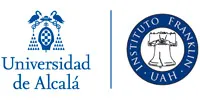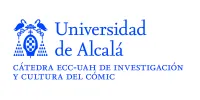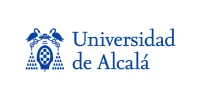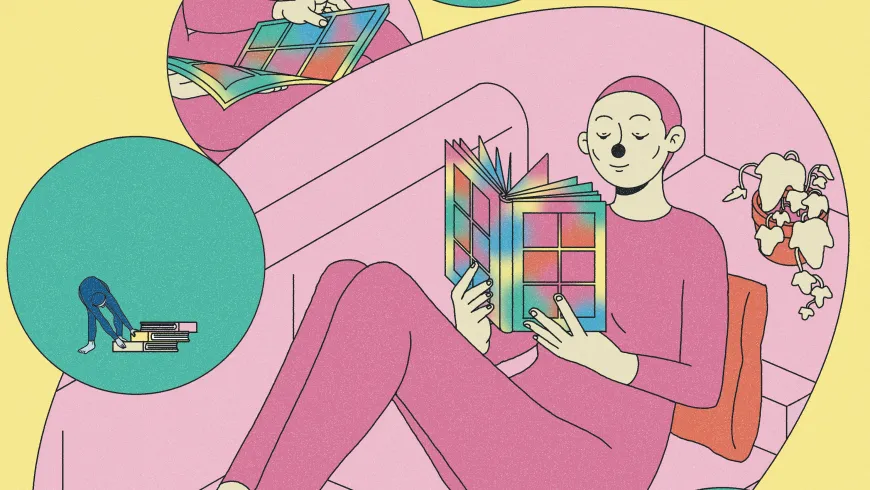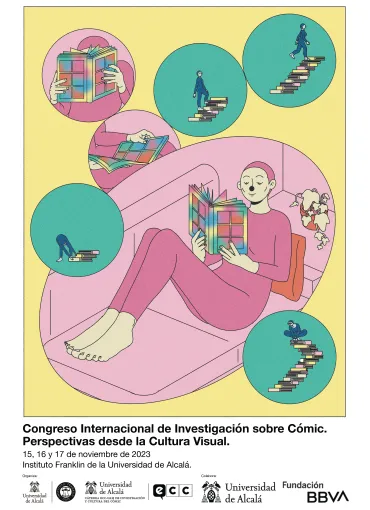International Comic Book Research Conference
Perspectives from Visual Culture
The International Comic Book Research Conference: Perspectives from Visual Culture, organized by Instituto Franklin de la Universidad de Alcalá and Cátedra ECC-UAH de Investigación y Cultura del Cómic, aims to propose a space for research, dissemination and debate around studies on comics, from the methodological framework of visual culture.
The theme of the conference is the relationship between the various lines of research on comics and visual culture studies, which, in recent decades, have been developed by authors such as W. J. T. Mitchell, Keith Moxey or James Elkins, and which suggests a set of analysis tools that are specific to the image, compared to other linguistic paradigms. We propose an approach to the comic that does not treat it as an exception or isolated language, but that inserts it in the set of image media typical of contemporary society, on the one hand, and that mainly attends to its visual nature, on the other. Thus, the following lines of research are established, covering those studies on comics carried out within the framework of various disciplines and methodological approaches:
- Draw words, write drawings. Comic, multimodality and visual literacy.
- Visual Culture or Visual Cultures?
- Similarities and differences between the languages of the comic strip, comic book, bande dessinée, manga and other manifestations of the medium.
- Vignettes and Graphic Heritage: Confluences between the Comic Book and the Dialectic of Maps, Diagrams, and Infographics.
- From typography to layout: Comic and graphic design.
- The Analysis of Images from the Past: Visual Culture(s) of the Lost and Recovered Comic Book.
- History of image reproduction technology and its connection to comic reception.
- Highbrow/Lowbrow: Comics as Visual Art and Mass Media.
- Comic and cultural canon.
- Comic and visual theory: Relations between the theories of Comic Studies and those of other disciplines (Cinema, Painting, Television, etc.).
- Interactivity and Audiovisual Mixing: The Comic at the Crossroads of Transmedia Storytelling.
- Other related arguments related to visual culture.
Within these lines, communication proposals are accepted with a maximum of 500 words. The proposal should describe, briefly, the objectives of the research, the theoretical framework, including some bibliographic reference, and the methodology used. The proposals will be written in Spanish and English, will not contain any data related to the authorship. Proposal must be complete in the website of the conference with data full authorship, institutional affiliation, email, and contact telephone, together with a short CV of 150 words.
We also accept complete panels that will be composed of 3 or 4 communications. In that case, the coordinator must send the abstract of all the communications of the panel and the data and CV of the authors. Each individual communication shall follow the rules set out in the preceding paragraph.
The deadline for submissions is June 15, 2023. Acceptance of the communication shall be notified by September 15, 2023. A selection of communications will subsequently be published in the journals CuCo, Cuadernos de Comic, Neuroptica and Tebeosfera, as well as in a monographic volume.
- End of proposal submission: June, 15th
- Provisional program + registration: September 10th
- Reduced fee: from September 10th to October 10th
- Normal fee: from October 11th to October 26th
- Final program: November, 2nd
- Conference: November, 15, 16 y 17th
- Mariela Alejandra Acevedo (Universidad de Buenos Aires)
- Eduard Baile (Universidad de Alicante)
- Roberto Bartual (Universidad de Valladolid)
- Jorge Catalá-Carrasco (University of Newcastle)
- Esther Claudio (University of Iowa)
- Diego Espiña Barros (Saint Xavier University)
- Adela Cortijo (Universidad de Valencia)
- Julia Cristina Gómez Sáez (Universidad Complutense de Madrid)
- Irma González Sánchez (Universidad de Alcalá)
- Julio Andrés Gracia Lana (Universidad de Zaragoza)
- Hugo Hinojosa (Universidad Academia de Humanismo Cristiano)
- Noelia Ibarra (Universidad de Valencia)
- Anne Magnussen (University of Southern Denmark)
- Agatha Mohring (Université d'Angers)
- Iván Pintor (Universitat Pompeu Fabra)
- Álvaro M. Pons (Universidad de Valencia)
- María Porras Sánchez (Universidad Complutense de Madrid)
- Pepo Pérez (Universidad de Málaga)
- Ivan Rodrigues (Universidade Federal de São Paulo)
- José Rovira Collado (Universidad de Alicante)
- José Andrés Santiago (Universidade de Vigo )
- Greice Schneider (Universidade Federal de Sergipe)
- José Manuel Trabado (Universidad de León)
- Eva Van de Wiele (Ghent University)
- Carlos Villarreal (Universidad de Alcalá)
- Julio Cañero Serrano (Universidad de Alcalá)
- Esperanza Cerdá Redondo (Instituto Franklin-UAH)
- Andrea Hormaechea (Universidad Complutense de Madrid)
- Ana Lariño Ares (Instituto Franklin-UAH)
- Elena Masarah (Universidad Europea de Madrid/Universidad de Zaragoza)
- Elisa McCausland (Universidad Complutense de Madrid)
- Enrique del Rey (Universidad de Alcalá)
- Laura Rey Carretero (Instituto Franklin-UAH)
- Francisco Sáez de Adana (Universidad de Alcalá)
- Diego Salgado (Investigador Independiente)
- Cristina Sánchez Pacios (Instituto Franklin-UAH)
- Gerardo Vilches (Universidad Europea de Madrid)

Jeffrey A. Brown received his PhD in Anthropology from the University of Toronto in 1996. He is a Professor in the Department of Popular Culture and the School of Critical and Cultural Studies at Bowling Green State University. Brown is the author of over 30 academic articles about gender, ethnicity and sexuality in contemporary media, as well as four books: Black Superheroes: Milestone Comics and Their Fans (2000), Dangerous Curves: Gender, Fetishism and the Modern Action Heroine (2011), Beyond Bombshells: The New Action Heroine in Popular Culture
(2015), and The Modern Superhero in Film and Television (2016).
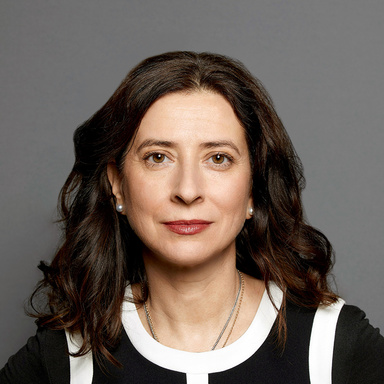
Ana Merino (Madrid 1971) is a lecturer in Creative Writing in Spanish and Cultural Studies at the University of Iowa. In 2011, she founded the MFA (Master in Fine Arts) in Creative Writing in Spanish at that University, which she directed until December 2018. She published ten collections of poems: Preparativos para un viaje (Adonais Prize 1994; Rialp Publishing House 1995, 2nd edition Reino de Cordelia Publishing House, 2013), Los días gemelos (Visor Publishing House, 1997), La voz de los relojes (Visor Publishing House, 2000), Juegos de niños (Fray Luis de León Prize, Visor Publishing House, 2003), Compañera de Celda (Visor Publishing House 2006), Curación (Visor Publishing House, 2010, Jaime Gil de Biedma Accesit Prize), Los buenos propósitos (Visor Publishing House, 2015), Salvamento de hormigas (Visor Publishing House, 2022); the children’s books Hagamos caso al tigre (Illustrated by Max, Anaya Publishing House, 2010), El viaje del vikingo sonñador (Illustraded by Max, Santillana Publishing House, 2015). She was awarded the 2020 Nadal Prize for her novel El mapa de los afectos (Destino Publishing House, 2022) and she published the novel Amigo (Destino Publishing House, 2022). She is also the author of the juvenile novel El hombre de dos corazones (Anaya Publishing House, 2009) and the album Martina y los piojos (Illustrated by Axier Uzkudun, Riempego Publishing House, 2017) and the plays Amor: muy frágil (Reino de Cordelia Publishing House, 2013), which she directed and premiered in Zurich in 2012, Las decepciones (Literal/Conaculta Publishing House, 2014), La redención (Reino de Cordelia Publishing House, 2016), which she co-directed and premiered in Iowa City in 2017, and the children’s play Salvemos al elefante (Santillana Publishing House, 2017). In addition, she has written several articles on comics, published in scientific journals and academic books: El Cómic Hispánico (Cátedra Publishing House, 2003) and Diez ensayos para pensar el comic (Eolas/Universidad de León, 2017), a critical monograph, Chris Ware: La secuencia circular (Sinsentido Publishing House, 2005) and the Fantagraphics catalogs Creadores del canon (NS, 2003) and Illustrating Spain in the US (Fantagraphics, 2022). She received the Diario de Avisos Award for her short articles on comics in Leer Magazine. She wrote opinion articles for El País and she organized six exhibitions on comics. She has been a member of the Executive Committee of the International Comic Art Forum (ICAF), the Steering Committee of the Center for Cartoon Studies (CCS), the Board of Directors of Iowa City, UNESCO City of Literature, and she is currently a member of the Riverside Theater Executive Board in the city of Iowa.
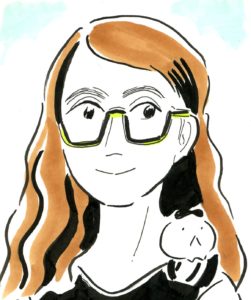
Jaqueline Berndt is Professor in Japanology at Stockholm University. Previously, she taught Comics Theory at Kyoto Seika University, Japan. Her main academic work is in the areas of Comics/Manga Studies and Animation/Anime studies and engaged in relating New Formalism to Media Studies. It has appeared in Japanese, English, German, and Spanish. She is chairperson of the Open Access series Stockholm Media Arts Japan (Stockholm University Press) and one of the managing editors of the book series Comics Studies: Aesthetics, Histories, Practices (de Gruyter). She has also directed exhibitions, for example, "Manga Hokusai Manga: Approaching the Master’s Compendium from the Perspective of Contemporary Comics" for the Japan Foundation (2016–).
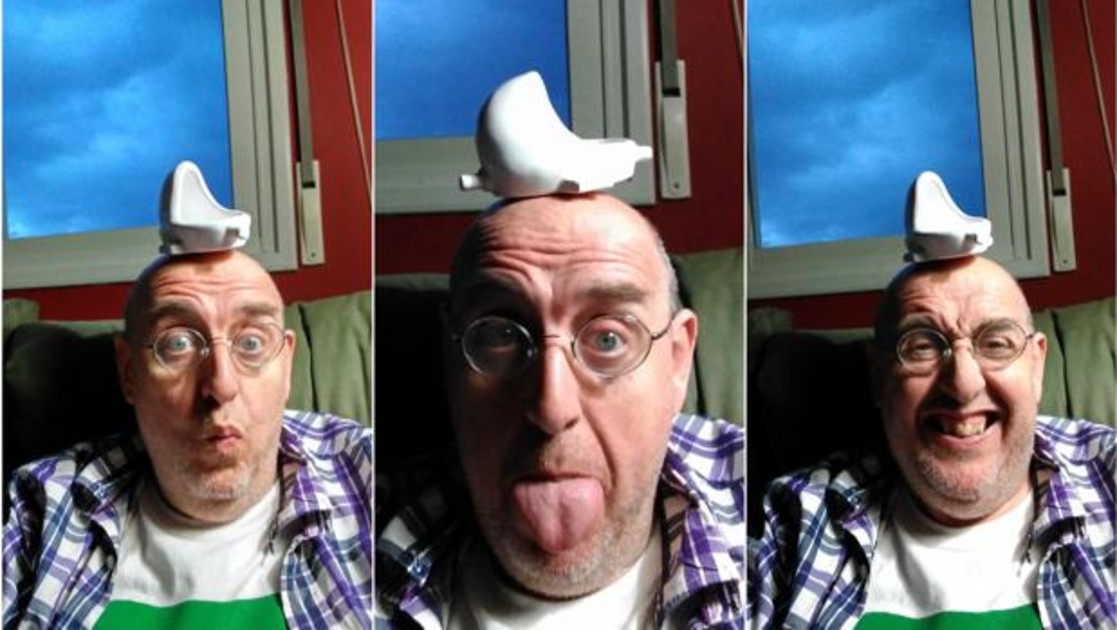
Fernando Castro Flórez (Plasencia, 1964). Professor of Aesthetics at the Universidad Autónoma de Madrid. He has written cultural reviews for newspapers such as El País, Diario 16, El independiente, El Sol and El mundo. For the past fifteen years he has worked as an art critic for ABC Cultural. He regularly contributes to publications in magazines such as Revista de Occidente or Descubrir el arte. He is a member of the Advisory Committee of the Museo Nacional Centro de Arte Reina Sofia. He has been a commissioner of exhibitions of artists such as Miró, Dalí, Cragg, David Nash, Nacho Criado, Warhol, Francis Bacon, Imi Knoebel, Julian
Opie, Fernando Sinaga, Anselm Kiefer, Miquel Navarro or Bernardí Roig. He has written books such as Elogio de la pereza. Notas para una estética del cansancio (1992), El texto íntimo. Kafka, Rile, Pessoa (1992), Contra el bienalismo (2012), Mierda y catástrofe. Síndromes culturales del arte contemporáneo (2014), Estética de la crueldad (2019), Filosofía tuitera y estética columnista (2019) or Cuidado y peligro de sí (2021).
Registration fee includes: admission to sessions and plenary conferences, conference material, welcome coffee breaks, institutional cocktail and participation or attendance certificates.
IMPORTANT: if you need an invoice or receipt, contact cristina.sanchez@institutofranklin.net BEFORE registration and payment.
| Reduced fee, from September 10th until October 10th | Fee |
|---|---|
| General Speaker | 100 € |
| Young Researcher Speaker * | 80€ |
| Attendees | 60 € |
| Undergraduate Students** | 30 € |
| Instituto Franklin-UAH Students | 0 € |
| Normal fee, from October 11th until October 26th | Fee |
|---|---|
| General Speaker | 140 € |
| Young Researcher Speaker * | 100 € |
| Attendees | 60 € |
| Undergraduate Students** | 30 € |
| Instituto Franklin-UAH Students | 0 € |
*A proof of registration must be attached in the Document field.
**EA proof of registration must be attached in the Document field
Cancellation Policy
Until October 11th 80% refund
Until October 26th 50% refund
From Novemeber 26th no refund
-
Presentations should last approximately 20 minutes, leaving time for questions or debate.
-
The spaces where the panels will take place have a computer, projector, screen and WiFi connection.
-
It is recommended to use a USB or flash drive for the presentations of each paper, preferably in PPT or PDF format.
